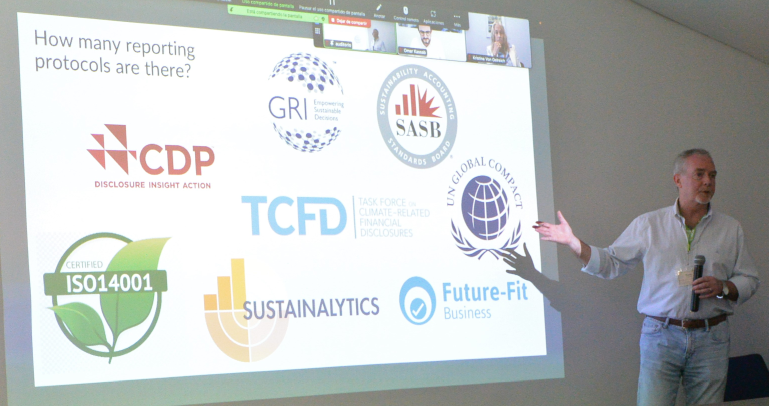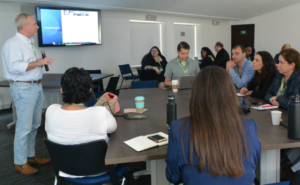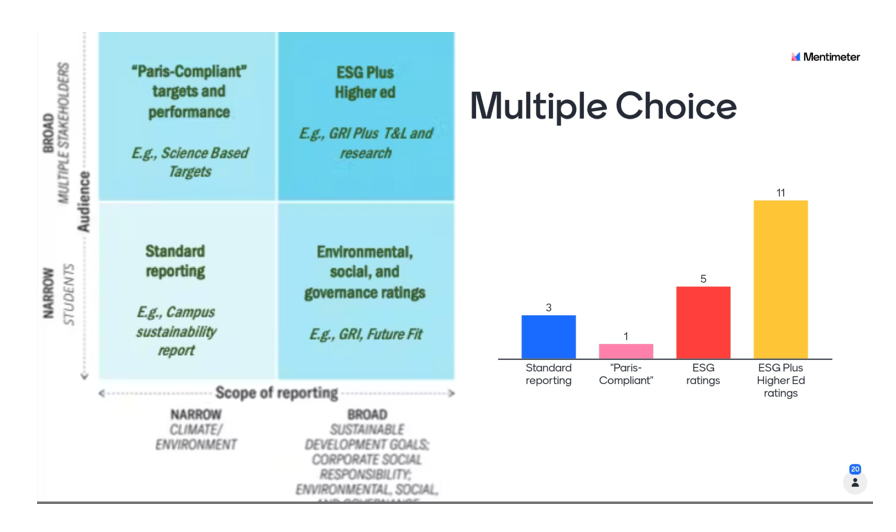Sustainability Reporting Survey Results Released

Across the globe, sustainability has become a strategic theme for higher education institutions. Not only in the traditional domains of research and teaching, but also in the institution’s mission and planning, public engagement, campus operations, and other related contexts. A key means for institutions to monitor and report their progress is sustainability reporting.
Based on this observation, the ISCN Sustainability Reporting Group developed a survey in late 2022 to gain an understanding of existing sustainability reporting practices in the global higher education sector. The survey also aimed to identify challenges and opportunities to improve current practices of sustainability reporting and form the basis for policy recommendations.
The survey covered a range of topics including the strategic priority of sustainability, reporting standards used, stakeholder influence, drivers, and many more. Sixty-nine valid responses were analysed.
Seven key insights were drawn from the survey responses.
- Sustainability is of strategic importance. Unsurprisingly given who was surveyed, sustainability is a strategic importance for respondents, particularly for ISCN members. University size or location does not impact strategic importance significantly. Almost all respondent universities define sustainability goals.
- Leadership counts. University leadership has the greatest influence on making sustainability a priority at an institution. Students, staff, and academics/faculty have a similar amount of influence. External entities like government, industry and society has some but lesser influence.
- Size and resources are related. The larger the university, the more likely there is a sustainability office.
- Reporting faces internally. Staff (academic and professional) and students are the priority target groups of sustainability reporting for respondents.
- Sustainability reporting is collaborative. More than 10 people are involved in the sustainability reporting process for universities across ISCN membership, location, and university size. A wide variety of units across the university are involved.
- Reporting is driven by commitment and better decision making. The two most important drivers for respondents were “Monitoring progress of sustainability performance to inform decision-making processes” and “Intrinsic belief in the importance of sustainability”.

The Reporting Group then followed up with a workshop discussion at the 2023 ISCN Conference in Mexico City, where members discussed the preliminary results and agreed with the final conclusion:
7. There is no reporting standard.
Workshop members asked the Reporting Group to consider how ISCN might co-develop a general reporting standard that could become recognizable in the manner of corporate ESG reporting frameworks.

Download the ISCN Sustainability Reporting Survey Summary – April 2024 (PDF)
Many thanks to everyone that completed the survey, and current and former members of the sustainability reporting group for their work:
Ana Carla Madeira, Universidade do Porto (Portugal)
Andreas Dionyssiou, Cyprus University of Technology (Cyprus)
Angel Calderon, Royal Melbourne Institute of Technology (Australia)
Anna Berglund, formerly KTH Royal Institute of Technology (Sweden)
Claudia Zingerli Glatt, ETH Zurich (Switzerland)
Davis Bookhart, Northeastern University (USA)
Dimitrios Noukakis, EPFL (Switzerland)
Jen Crothers, ISCN
Kristina Von Oelreich, KTH Royal Institute of Technology (Sweden)
Omar Kassab, formerly ETH Zurich (Switzerland)
Paul Cross, ETH Zurich (Switzerland)
Sebastian Kahlert, ETH Zurich (Switzerland)
Sonja Moghaddari, EPFL (Switzerland)
Xime Trujillo, University of Pennsylvania (USA)
Please email [email protected] if you are interested in joining the group.